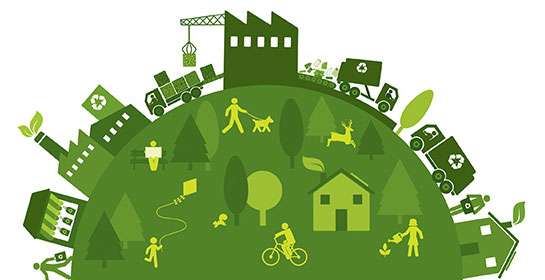How Can Sustainability Improve Our Environment?
The basis of sustainability realizes that the resources available on Earth are exhaustible. Therefore, it is integral for all humans to manage the resources rationally to maintain them in the long term for all the generations to come. This will prove to be for the good of the Earth, our environment, humanity, & all living things. The identity of a sustainable society is humans living in harmony with the environment surrounding them, conserving resources for future generations so that all individuals are promised social justice and a high quality of life.
As a result of the increasing population, the multifold increase in human activities has reduced the sustainable development of natural resources on our planet. The ever-increasing human population and increment in per capita consumption have significantly constrained natural resources. We humans have left no part of our planet untouched, which has given rise to pollution and deforestation. Moreover, urbanization, industrialization, and modern agricultural practices have polluted the water resources and reduced our air and soil quality. Natural resources are thus being over-exploited and becoming contaminated with toxic chemicals, making it difficult for the survival of future generations. The answer to all these issues is sustainable practices.
Sustainable practices will lead to efficient production, which will give rise to resources allocated effectively. This will help in the reduction of wastage. A decrease in over-production in factories will also reduce pollution, which will help improve our air quality. This is the conservation of our environment and aids in the acquisition, mobilization, and protection of means and resources. Through this, we strike out the excessive use of resources. A more sustainable approach will reduce carbon footprint and toxins released into the air, which will reverse Global warming. The problems faced due to Global Warming, such as rising temperatures, ice caps melting, and natural disasters, can significantly reduce all. By reducing the harm done to our land, we will halt biodiversity loss. We can protect our ecosystems and our endangered species.
By focusing on cost-cutting activities such as reducing energy usage, sustainable activities will lead to higher economic growth through resource management in the economy. One primary practice is to reuse, recycle, and reduce. Reduce the use of exhaustible resources such as coal and instead switch to other initiatives for producing electricity such as solar panels, windmills, etc. Recycle the waste produced through the use of plastic, metals, and other products. This way, we will reduce waste disposal that harms the air quality and causes soil degradation. This will reduce landfills that won’t take generations to decompose. Reusing products will reduce the amount of resource wastage in society. Sustainable agricultural practices such as crop rotation can help with efficient water management and fix the problem of water wastage. These agricultural practices also decrease the use of pesticides in our soil which will help improve our soil health. Instead of land being wasted and a need for deforestation, we can make good use of the land we already have.
Looking at all these reasons, one must realize the urgency of adopting sustainable practices in your homes, offices, and community.












